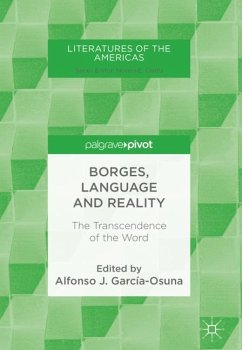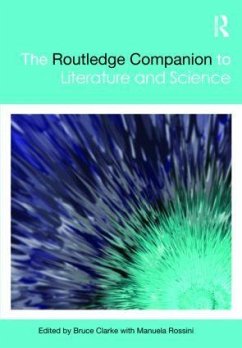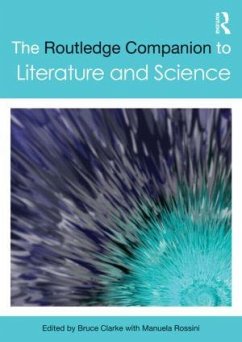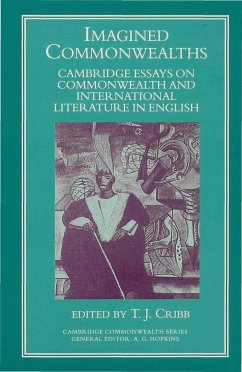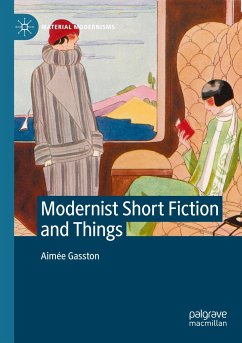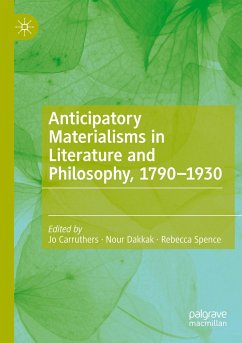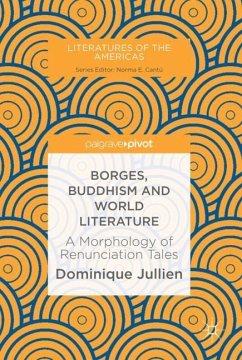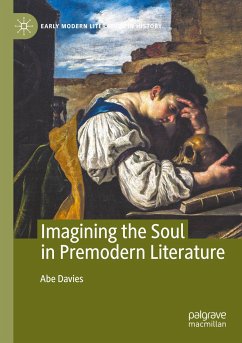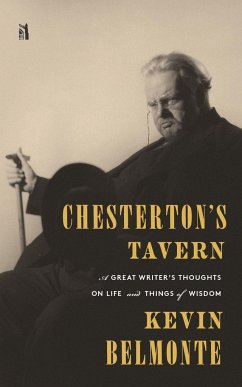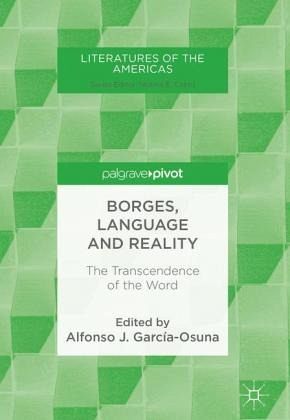
Borges, Language and Reality
The Transcendence of the Word
Herausgegeben: García-Osuna, Alfonso J.
Versandkostenfrei!
Versandfertig in 6-10 Tagen
42,99 €
inkl. MwSt.

PAYBACK Punkte
21 °P sammeln!
This book brings together the work of several scholars to shed light on the Argentine author Jorge Luis Borges' complex relationship with language and reality. A critical assumption driving the work is that there is, as Jaime Alazraki has put it, 'a genuine effort to overcome the narrowness that Western tradition has imposed as a master and measure of reality' in Borges' writing. That narrowness is in large measure a consequence of the chronic influence of positivist approaches to reality that rely on empirical evidence for any authentication of what is 'real'. This study shows that, in opposi...
This book brings together the work of several scholars to shed light on the Argentine author Jorge Luis Borges' complex relationship with language and reality. A critical assumption driving the work is that there is, as Jaime Alazraki has put it, 'a genuine effort to overcome the narrowness that Western tradition has imposed as a master and measure of reality' in Borges' writing. That narrowness is in large measure a consequence of the chronic influence of positivist approaches to reality that rely on empirical evidence for any authentication of what is 'real'. This study shows that, in opposition to such restrictions, Borges saw in fiction, in literature, the most viable means of discussing reality in a pragmatic manner. Moreover, by scrutinising several of the author's works, it establishes signposts for considering the truly complicated relationship that Borges had with reality, one that intimately associates the 'real' with human perception, insight and language.



